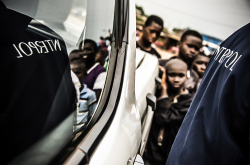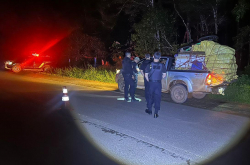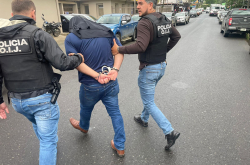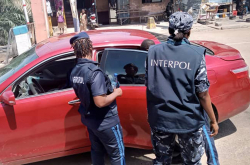A new report from INTERPOL assesses the problem of trafficking in human beings for organ removal (THBOR), which is driven largely by the global shortage in organs for ethical transplant. While organ trafficking exists in all regions of the world, it is of particular concern in North and West Africa where impoverished communities and displaced populations are at greater risk of exploitation.
The strategic assessment report, produced as part of Project ENACT, provides insight and analysis into the issues, to enable law enforcement agencies in North and West Africa to devise the appropriate responses.
Transplant tourism
Organized crime groups are known to be behind trafficking in human beings for organ removal, drawn by the substantial profits that can be made.
Information suggests a wide spectrum of actors are involved in organ trafficking in North and West Africa with connections to the medical sector in countries from Africa and beyond, notably in Asia and the Middle East.
Trafficking in human organs can be done only in the framework of complex networks, due to the required skills (medical specialists, surgeons, nurses), logistics (matching compatible patients and donors), and healthcare facilities (analytical laboratories, clinics, operating rooms).
The report shows probable links between transplant tourism – where a patient travels abroad to buy an organ for illegal transplant – and THBOR in North and West Africa. Either in the context of transplants performed in North Africa with organs illegally sourced in the region, or transplants done elsewhere with illegally sourced organs from nationals from North and West Africa.
Vulnerable communities
Organized criminal groups profit from the desperation of the unemployed, migrants, asylum seekers and refugees to coerce them into selling an organ. Victims of human trafficking for sexual and labour purposes also find themselves at additional risk.
The techniques used for the recruitment and control of the victims are the same as those used for other types of human trafficking, such as promises of job opportunities abroad, as well as the use of threats and violence.
Most often, victim-donors receive a smaller amount of the money than had been agreed with the recruiter or broker, and in some cases they may not get any of the promised payment. Many victim-donors have suffered post-operative complications and health issues.
The socioeconomic impact of the COVID-19 pandemic is expected to fuel THBOR as it will likely be easier for brokers to coerce vulnerable individuals to sell an organ to improve their economic conditions. This is exacerbated by the fact that legal organ donations, and therefore transplants, have suffered major decreases since the outbreak of COVID-19.
Actionable intelligence
“While trafficking in human beings for organ removal is not a new phenomenon, it is underreported due to the clandestine nature of the crime, combined with a lack of awareness by law enforcement agencies and the deficiency of information sharing channels between the medical and police sectors,” said Cyril Gout, INTERPOL’s Direct of Operational Support and Analysis.
“This strategic assessment provides INTERPOL member countries with actionable strategic intelligence on THBOR in North and West Africa and will further facilitate law enforcement cooperation among the countries affected,” added Mr Gout.
The report supports law enforcement agencies to set priorities, so as to identify potential victims, investigate trafficking in human being cases that are motivated by the organ trade, and target the criminal networks that facilitate THBOR.
Project ENACT
Project ENACT (Enhancing Africa’s Response to Transnational Organised Crime) seeks to assist police in Africa to adopt proactive strategies to combat organized crime threats, facilitate information exchange and enhance investigative skills.
Project ENACT is funded by the European Union and implemented by INTERPOL and the Institute for Security Studies, in partnership with the Global Initiative Against Transnational Organized Crime.











